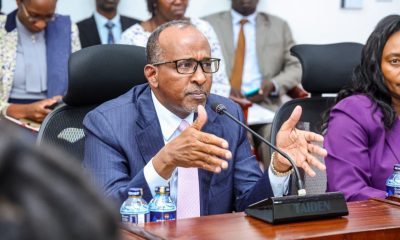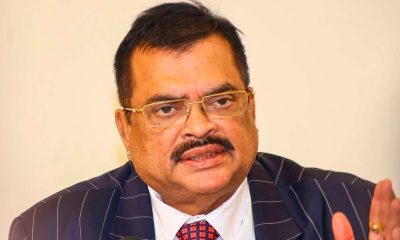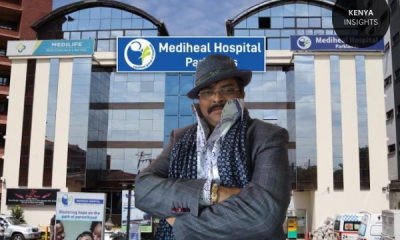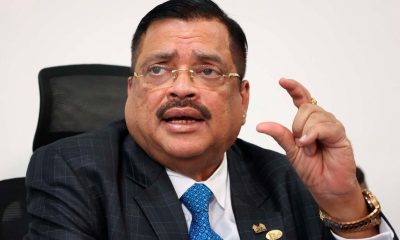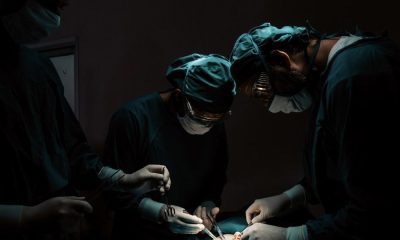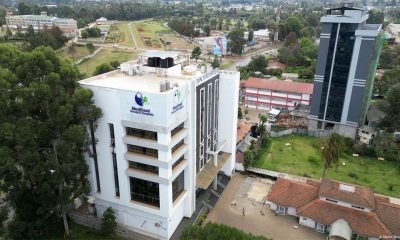Investigations
New Probe Reveals Full Scope of Hospitals in Mediheal Organ Trafficking Syndicate
According to testimony, foreign recipients paid up to Sh30 million for kidney transplants, while Kenyan donors were promised amounts ranging from Sh500,000 to Sh1.2 million – money many never fully received.
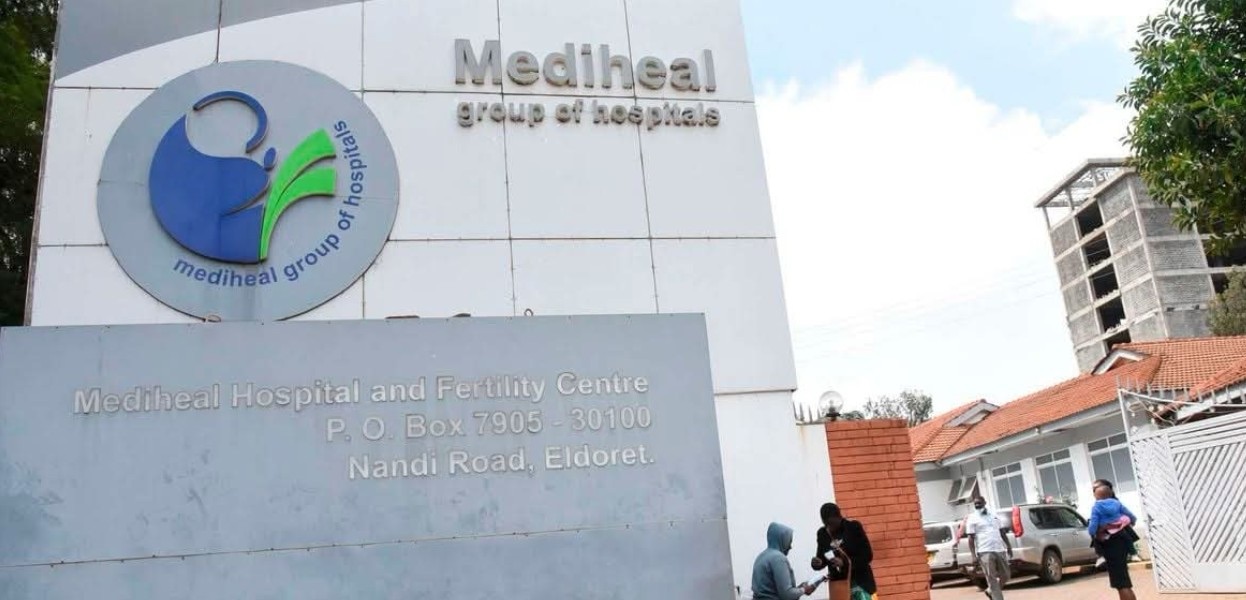
Explosive parliamentary testimony exposes multi-hospital network preying on vulnerable Kenyans while wealthy foreigners pay millions for organs
A sprawling international organ trafficking syndicate involving multiple Kenyan hospitals has been exposed, with new evidence revealing that the Mediheal Group of Hospitals was merely one node in a complex criminal network that has operated with impunity for years.
Shocking testimony before Parliament’s Health Committee has unveiled the full scope of what investigators now describe as a well-orchestrated operation that lures impoverished Kenyans with false promises while charging wealthy foreign recipients up to Sh30 million for kidney transplants.
Beyond Mediheal: A Network Exposed
Nandi Hills MP Bernard Kitur, the primary whistleblower in the case, told the National Assembly Departmental Committee on Health that the syndicate extends far beyond the Eldoret-based Mediheal facility that has dominated headlines.
“While Mediheal Group of Hospitals has remained at the centre of public scrutiny, new evidence suggests that it is part of a larger system in which several private health institutions, both licensed and unlicensed, may be complicit in illegal kidney transplants and unethical organ procurement practices,” Kitur testified on Thursday.
The MP revealed that the criminal network involves “rogue medical practitioners, unscrupulous middlemen, and poorly regulated private clinics operating under the radar” across multiple counties.
The Human Cost: Broken Promises and Shattered Lives
The committee heard harrowing details of how the syndicate operates, with victims targeted in shopping centers and public spaces by brokers promising easy money and better lives.
Emmanuel Kipkosgey’s case epitomizes the exploitation at the heart of the scandal. Promised Sh1.2 million for his kidney, he received only Sh50,000 before the operation and Sh400,000 afterward – leaving him with a balance of Sh650,000 that was never paid.
“Despite his deteriorating health condition, Kipkosgey continues to suffer without the full compensation he was promised,” Kitur revealed.
The MP detailed how another victim, Amon Kipruto Melly, had his identification documents altered with fake foreign credentials to facilitate the illegal operation – a practice that appears systematic within the network.
International Dimensions: A Global Trade
The investigation has uncovered the international scope of the operation, with wealthy patients flying in from Israel, Germany, Uganda, and Sudan to receive organs harvested from Kenyan donors.
According to testimony, foreign recipients paid up to Sh30 million for kidney transplants, while Kenyan donors were promised amounts ranging from Sh500,000 to Sh1.2 million – money many never fully received.
A recent documentary by DW TV exposed links between Mediheal and an Israeli-owned online medical company, revealing that kidneys harvested from impoverished Kenyans for Sh294,000 were being sold to German recipients for Sh3.2 million each.
Government Cover-Up Allegations
The scandal has been compounded by explosive allegations that government officials attempted to suppress damaging findings about the operation.
Dr. Philip Cheptinga, a nephrologist who served on a 12-member government probe team, claimed that senior Ministry of Health officials pressured investigators to exclude adverse findings from their final report.
“The orders came from above – from the Health ministry itself – and we were told to comply. Three of us who were unwilling to do so walked away from the final stages of developing the report,” Dr. Cheptinga told Nation Media Group.
The government team had flagged “suspicious activity for trafficking” and identified irregularities in 372 kidney transplants conducted at Mediheal since 2018.
However, the final report concluded there was “no sufficient evidence” to support trafficking claims – a finding the three dissenting members rejected.
Parliamentary Probe Widens Scope
Committee Chair Dr. James Nyikal acknowledged that the revelations may necessitate a broader investigation beyond Mediheal.
“The witness says there is a syndicate, and when it’s a syndicate, it means we might have to investigate more people and more hospitals,” Dr. Nyikal stated.
Endebess MP Dr. Robert Pukose, himself a medical doctor, urged the committee to expand its focus: “What’s emerging is that multiple hospitals may be involved in this process. If several facilities are implicated, then focusing on just one raises questions.”
Operational Methods Exposed
The testimony revealed sophisticated methods used by the syndicate:
- Targeted recruitment: Brokers approach vulnerable young men, particularly those from single-parent households, in shopping centers and public spaces
- Document falsification: Victims’ identification documents are altered with fake foreign credentials
- Multi-facility operations: Initial testing occurs at one facility before transfers to Mediheal for the actual procedures
- Cross-border facilitation: Some Kenyan donors are reportedly issued fake Somali passports to appear as foreign donors
Dr. Cheptinga alleged that vulnerable Kenyans under 18 were given Somali names and passports before their organs were harvested, explaining why hospital records showed “cousins” from Somalia donating to recipients from Azerbaijan and Uzbekistan.
Ongoing Operations Despite Scrutiny
Despite increased scrutiny, the syndicate allegedly continued operations into 2024, with Dr. Cheptinga reporting six transplants in February, ten in March, and two in April, with most recipients from Israel.
He also noted an influx of dialysis patients “who don’t speak Kiswahili, don’t use M-Pesa, and only pay in cash while claiming to be from Nairobi” – suggesting continued foreign involvement in the network.
Security Concerns and Intimidation
MP Kitur revealed that his life is now under threat, claiming he was followed by unknown individuals in Brookside the night before his testimony.
“A car was trailing my car last night in Brookside. They were from the DCI,” he stated, calling for enhanced security protection.
Call for Justice and Compensation
The 90-day parliamentary inquiry, which began Thursday, aims to uncover the full extent of the malpractice and recommend legislative and administrative reforms.
Ndhiwa MP Martin Owino cautioned against premature disclosure of information, warning that “the more information we disclose prematurely, the more we alert these syndicates. Some may then go underground.”
Preliminary reports indicate that surgeries were performed without proper medical records, informed consent, or follow-up care, with some donors suffering severe complications or disappearing entirely.
Industry Response
Mediheal Hospital Chairperson Dr. Swarup Mishra has denied the allegations, stating: “In the name of God, I swear we have not selected any donor or paid them.”
However, the weight of evidence and testimony suggests a systematic operation that has exploited regulatory gaps and institutional weaknesses to prey on Kenya’s most vulnerable citizens while enriching foreign recipients and criminal intermediaries.
As the parliamentary probe continues, the full scope of what appears to be one of Kenya’s most extensive medical scandals is only beginning to emerge, with implications that may extend far beyond the borders of any single hospital or region.
The investigation continues, with the Health Committee expected to hear from additional witnesses and examine evidence over the coming weeks.
Kenya Insights allows guest blogging, if you want to be published on Kenya’s most authoritative and accurate blog, have an expose, news TIPS, story angles, human interest stories, drop us an email on [email protected] or via Telegram
-

 Investigations1 week ago
Investigations1 week agoBillions Stolen, Millions Laundered: How Minnesota’s COVID Fraud Exposed Cracks in Somali Remittance Networks
-

 News1 week ago
News1 week agoUS Moves to Seize Luxury Kenya Properties in Sh39 Billion Covid Fraud Scandal
-

 News1 week ago
News1 week agoMAINGA CLINGS TO POWER: Kenya Railways Boss Defies Tenure Expiry Amid Corruption Storm and Court Battles
-

 Investigations1 week ago
Investigations1 week agoJulius Mwale Throws Contractor Under the Bus in Court Amid Mounting Pressure From Indebted Partners
-

 Americas1 week ago
Americas1 week agoUS Govt Audits Cases Of Somali US Citizens For Potential Denaturalization
-

 Business1 day ago
Business1 day agoEastleigh Businessman Accused of Sh296 Million Theft, Money Laundering Scandal
-

 Business1 day ago
Business1 day agoEXPLOSIVE: BBS Mall Owner Wants Gachagua Reprimanded After Linking Him To Money Laundering, Minnesota Fraud
-

 Americas3 days ago
Americas3 days agoTrump Says US Needs Greenland For Its National Security

